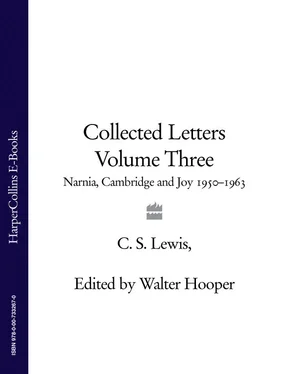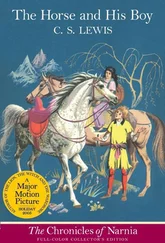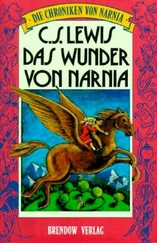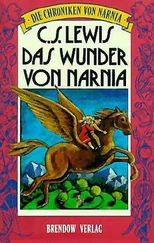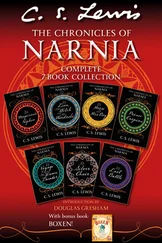I hope your mother keeps well, and you also. Thanks to the photos you sent me. I picture you both always on a sea beach. But presumably you are now travelling on snow shoes.
With all best wishes and thanks
Yours sincerely,
C. S. Lewis
TO VERA MATHEWS (W): 27 TS
RER50/81.
Magdalen College,
Oxford.
30th January 1950.
Dear Miss Mathews,
I was very sorry to hear about the miserable fiasco of your New York holiday. ‘Flu itself I don’t mind so much, especially in its later stages when the temperature has gone down, but the getting back to normality afterwards is beastly. I hope that by this time you are over the ‘wet rag’ stage, and feeling yourself once more.
Need I say how much we look forward to the parcel which you so kindly promise? It sounds most exciting, and will be very welcome: because, whether it blows fair and warm politically or not, it is anything but fair and warm in the literal sense. I suspect that in California you are exempt from such a day as we are having here—frost, followed by rain, followed by frost—every side walk converted by delighted small boys into an improvised skating rink—splendid opportunities of giving the passers by a good laugh every time you venture out!
With all best wishes for your health, and many thanks,
Yours sincerely,
C. S. Lewis
TO EDWARD T. DELL (P): 28 TS
REF.50/79
Magdalen College,
Oxford.
30th January 1950.
Dear Mr. Dell,
I think we mean very nearly the same. 29 Evil is certainly not a ‘Thing’. But many states of affairs, or relations between things, are regrettable, ought not to have occurred, and ought to be removed. And ‘Evil’ is an elliptical symbol for this fact.
Yours sincerely,
C. S. Lewis
TO SISTER MARYROSE ( L ): 30
[January 1950]
I am sorry if I misunderstood your letter: and I think that you misunderstood mine. What I meant was that if I replied to your original question (why I am not a member of the Roman Church) I shd. have to write a v. long letter. It would of course be answerable: and your answer would be answerable by me…and so on. The resulting correspondence would certainly not, of course, be in excess of the importance of the subject: but haven’t you and I both probably more pressing duties? For a real correspondence on such a subject wd. be nearly a wholetime job. I thought we cd. both discuss the matter more usefully with people nearer at hand. Even the two letters which we have exchanged have already revealed the pitfalls of argument by letter. With all good wishes.
TO NICOLAS ZERNOV(BOD): 31
[Magdalen College]
3/2/50
Dear Zernov
Your news is a great shock to me. I will write to Spalding. 32 It was a great pleasure to meet your wife the other night and altogether a splendid evening, as yours always are. Cd. you come & dine with me on Thurs. March 9? Do.
Yours
C.S.L.
TO MRS FRANK L. JONES (W): 33 TS
REE 50/18.
Magdalen College,
Oxford.
7th February 1950.
My dear Mrs. Jones,
Many thanks for your long and interesting letter of the 24th of January. (‘And’ says my secretary-brother, ‘don’t forget to give her my grateful thanks for being one of the few people who quotes the number on your letter when she writes’).
Your husband may well be proud of his school chapel, a beautiful building, which–to pay a typically English compliment—would rank high amongst school chapels over here!
No indeed, there is no question of my not wanting you to send anything, though there are times when I am more than a little ashamed at the amount you do send. And I note with great pleasure what you say about the tea: also about specially marked parcels.
I stand appalled at the list of your activities. I thought myself a busy man, but…
Now for an attempt at answering some of your questions:–
(1) Why was Christ always talking over people’s heads?
Since all we know of his teachings is derived from the disciples and St. Paul, we are not in a position to say that they did finally misunderstand Him. With what other account of His teaching can we check theirs? That He was often temporarily over their heads, I agree. That is the way to get a class on, as every teacher knows.
(2) About God being Truth and Justice, and nevertheless creating this world .
I’m afraid I can’t add to what I said about this in the Problem of Pain. 34
(3) Why did God make most people stupid?
Have you any evidence that He did? Some people are stupid through their own choice–laziness, and even fear of the truth—so have made themselves stupid. Others, through bad education etc., which is the fault of other humans, not of God.
(4) Neurotic .
My dictionary defines neurotic as one ‘having disordered nerves’. This would often mean in effect that the patient, with little or no moral guilt, does as the result of his disease the same things which would imply great guilt if a person in health did them—e.g. acts of cowardice, ill temper etc. (We all make the distinction in ordinary life when we excuse someone for being peevish because he is very tired, and therefore temporarily in bad nervous health). But no doubt f[r]iends and even doctors often flatter healthy but wicked people by attributing to neurosis what is really just wickedness. There is a great temptation to excuse oneself on the same grounds!
(5) What is a soul?
I am. (This is the only possible answer: or expanded, ‘A soul is that which can say I am’).
With best wishes.
Yours sincerely.
C. S. Lewis
TO MR LAKE (T):
Magdalen College
Oxford
8/2/50
Dear Mr Lake
I think the process is: Planets are gods in ancient poetry—and Intelligences in Aristotle—angels are ‘gods’ in O.T. 35 and Milton–Cambridge Platonists (and Florentine Platonists) identify both Platonic daemons & ancient gods with Christian angels—why not accept the identification? 36 –and incidentally try to rescue the Angels from the feminine & sentimental associations that have grown round them. See the learned note from the (non existent) Natvilcius in Cap I of Perelandra. 37
Yrs. sincerely
C. S. Lewis
TO DAPHNE HARWOOD (BOD): 38
Magdalen College
Oxford
20/2/50
Dear Daphne
You must have been bad if you thought last Wednesday was Ash Wednesday—or else you hold some Columban and pre-Augustinian view on the date of Easter. (Your Gudeman 39 will at a moment’s notice point out to you the passages in Bede which clear the whole thing up.) 40 I hope you’re well now? Bronchitis is nasty enough.
Fry is shattering. I’ve seen none and only read The Lady’s not for Burning. 41 The funny parts were funny enough to make me laugh; as for the poetry–the wealth of real genius in the imagery is beyond hope. Almost too much, and sometimes rather splashed about than used. But, by gum, it’s a good fault and one we’d almost despaired of ever seeing again. Can it be—dare we hope—that the ghastly mumbling and whining period in which you and I have lived nearly all our lives, is really coming to an end? Shall we see gold and scarlet and flutes and trumpets come back?
John is doing more this term. 42 How is Sylvia? 43 Give my love to Lawrence and all, including dear Woff. 44 And take care of yourself: let the young people work!
Yours sincerely
Jack L.
TO ROGER LANCELYN GREEN (BOD): 45
Magdalen College
Oxford
21/2/50
Читать дальше
